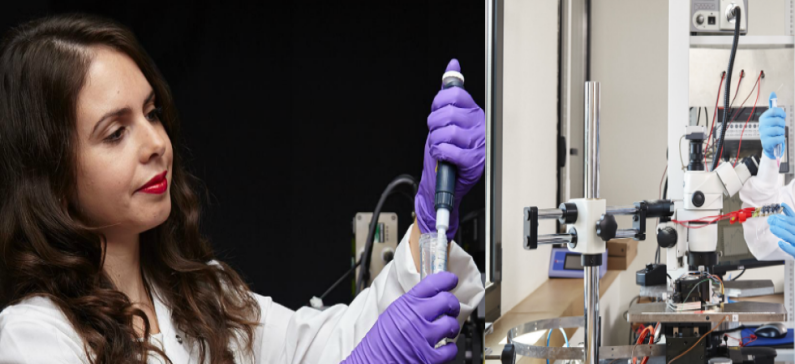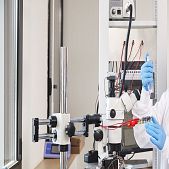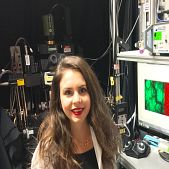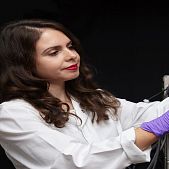
2 Greek researchers won in the “Women in Science” awards for 2017
Two young Greek scientists were among this year’s winners L’Oréal-UNESCO “For Women in Science” Fellowships. Each year, the L’Oréal Foundation, in partnership with the French Academy of Sciences and the French National Commission for UNESCO, awards Fellowships to thirty young female scientists who are helping advance the frontiers of research in France. Ten PhD students and twenty postdoctoral fellows are selected for their outstanding research. The program is designed to support them in their research and as they pursue their scientific career.
Fani Koukouli is a Postdoctoral fellow at the Institut Pasteur in the Integrative Neurobiology of Cholinergic Systems Unit directed by Uwe Maskos. Fani Koukouli is a young Greek postdoctoral researcher who is passionate about sailing in the Mediterranean and works with the Integrative Neurobiology of Cholinergic team at the Institut Pasteur. She has dedicated her research to this pathology, which has huge implications from medical, economic and social perspectives for patients and their relatives. The prefrontal cortex (PFC), the area of the brain that is especially associated with decision making and short-term memory, shows neuronal activity which decreases in people with psychiatric conditions such as schizophrenia. This cerebral deficit is due to a genetic anomaly in the nicotinic receptors which are present in the PFC, correlated with the fact that 80 to 90% of schizophrenia patients are smokers. During experiments in which she recreated this cerebral deficit, the young researcher was able to demonstrate that the repeated administration of nicotine helps re-establish neuronal activity in individuals affected by schizophrenia. “The aim of my research at the moment is to test different molecules which act on the nicotinic receptors and enable nerve cells to return to normal activity without the harmful effects associated with nicotine.” At the same time, she is leading a major project investigating the role of nicotinic receptors in the early stages of Alzheimer’s disease, which is the most common form of dementia and affects 44 million people. Her work also forms the basis of new pharmaco-therapeutic strategies.
Anna-Maria Pappa is a researcher Department of Bioelectronics (BEL) at the Centre Microélectronique de Provence of the Ecole Nationale Supérieure des Mines de Saint-Étienne, where she has a Marie Curie fellowship with the European project “ORGBIO”. She obtained her Diploma in Chemical Engineering at Aristotle University of Thessaloniki (AUTh), Greece in 2011, working on polymeric nanoparticles for drug delivery applications. During her 2-year Master’s studies she focused on the fabrication and characterization of multifunctional tissue engineering scaffolds for drug delivery and obtained her Master of Science (M.Sc.) from AUTh in 2014. Her research activities at BEL include the development of biosensing strategies using Organic Electrochemical Transistors for healthcare monitoring. She is working on an in vitro diagnostics platform, the aim of which is to know and anticipate the effects of antibiotics on bacteria in order to avoid the development of resistances to the bacteria. These in vitro tests have two interests: the originality of the coupling between biology and electronics on the one hand, and an innovative technique on the other hand, which reduces the number of test steps, for sensitive and reliable results cheaper.











